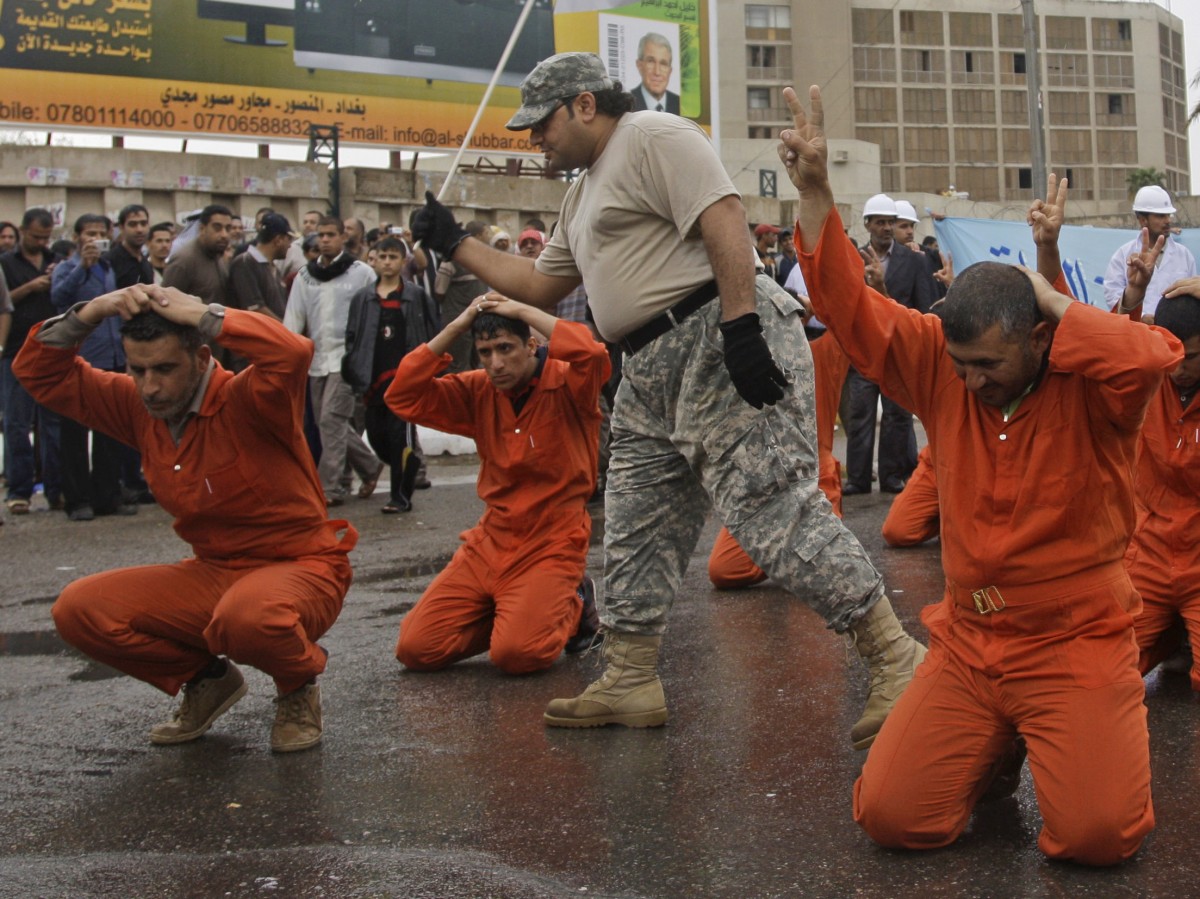
Less than 10 years after the world saw the first images of torture and abuse at the Abu Ghraib prison in Iraq, it is the victims who are now being sued by military contractor CACI International, seeking to recover fees from recent trials. Years later, victims are still struggling to cope with the memories from their ordeals.
“When I remember it now, I just want to set myself on fire,” says Taleb al-Maleji, a former Abu Ghraib prisoner, in an Al-Jazeera interview. “I was one of those Linda [a U.S. soldier] forced to be naked. There were sniffer dogs and sound bombs. They would take off our clothes and splash cold water in the cells in winter on our blankets and clothes so we couldn’t sleep or sit.”
Al-Maleji was never charged with a crime and was later released. He now lives with his elderly mother and four children in a rented home in Sadr City. His children say that he is too weak to work and is forever changed by what he went through. “I didn’t recognize my father when he came back. He was different — he was so weak,” says Hawra’a, his eldest daughter. Al-Maleji now spends his days smoking cigarettes and biting his wrists — two activities that he claims offers respite from the horrors of his past.
Common Dreams News Network reports that CACI International was recently cleared of any wrongdoing in a trial originally brought by a group of 256 Iraqi citizens who were former detainees at the Abu Ghraib prison. After recently losing their case in a U.S. court, the military contractor announced this week that it will seek more than $15,000 in compensation from the plaintiffs to cover witness fees, travel allowances and deposition transcripts.
“Given the wealth disparities between this multibillion dollar entity and four torture victims, given what they went through, it’s surprising and appears to be an attempt to intimidate and punish these individuals for asserting their rights to sue in U.S. courts,” said Baher Azny, legal director for the Center for Constitutional Rights. The current lawsuit involves only four of the 256 who came forward with claims against CACI and the U.S. military.
The announcement comes several weeks after a case against CACI was dismissed in U.S. courts. U.S. District Judge Gerald Bruce Lee ruled that CACI is “immune from suit for claims arising from acts related to its contract or performed in connection with military combat operations.”
Noah Feldman, a professor at Harvard Law School and a constitutional adviser to the Coalition Provisional Authority in Iraq in 2003 responded to the ruling by saying, “The court is saying, ‘We’re never going to look into it. We don’t want to know what happened in Abu Ghraib.’”
What are the allegations against CACI and how credible are the claims? The plaintiffs charged that CACI was part of a conspiracy to subject prisoners to “electric shocks; repeated brutal beatings; sleep deprivation; sensory deprivation; forced nudity; stress positions; sexual assault; mock executions; humiliation; hooding; isolated detention; and prolonged hanging from the limbs.”
It’s just a fraction of the alleged torture and misconduct that has been acknowledged by the Department of Defense dating back to 2004.
By the Department of the Army’s own admission in the 2004 Taguba Report, army personnel and contractors were identified in acts that included “Punching, slapping, and kicking detainees; jumping on their naked feet; Videotaping and photographing naked male and female detainees; and Forcibly arranging detainees in various sexually explicit positions for photographing,” among other charges.
None of the contractors have been prosecuted and 11 soldiers have been convicted of various minor charges including dereliction of duty. Nobody has been charged in the deaths of several detainees.


